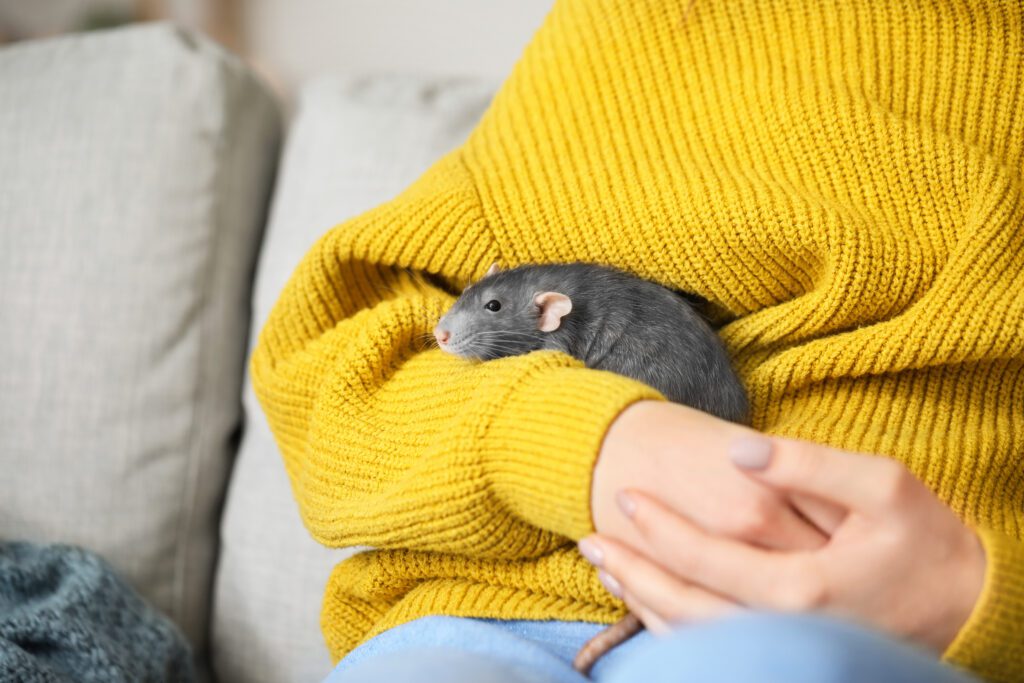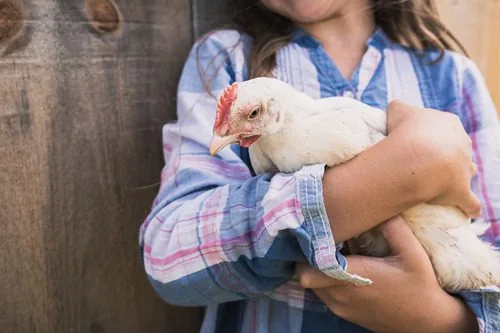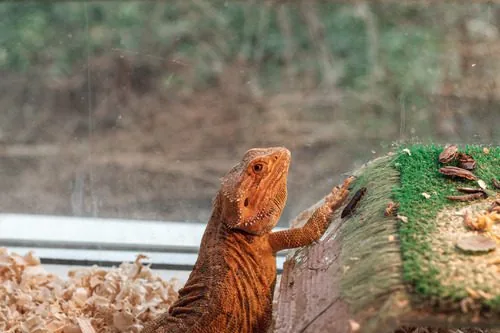Pet rats are remarkable creatures, known for their intelligence and natural curiosity. These traits make them not only fascinating companions but also ideal candidates for training. At the Avian & Exotic Animal Hospital of Louisiana, we often witness the remarkable abilities of these small pets. Their inquisitiveness drives them to explore and engage with their environment, a quality that makes training both a stimulating and rewarding experience.
Rats, in their essence, are problem solvers. This ability, which aids their survival in the wild, can be harnessed positively in a domestic setting. Training your pet rat is not just about teaching them new tricks; it’s about engaging their minds and satisfying their innate curiosity. When their intelligence is channeled into constructive activities, rats thrive and display a level of engagement that is both fascinating and heartwarming to see.

The Importance of Safe and Responsible Handling
Before embarking on any training journey with your rat, safe and responsible handling is paramount. A trusting relationship between you and your rat is the foundation of successful training. Rats must feel comfortable and secure with their handlers, and this comfort begins with regular, gentle interaction.
Handling your rat with care and respect fosters a bond of trust and understanding. Training should always be a positive experience, grounded in patience and consistency. Remember, the goal is not to dominate but to collaborate with your rat in a series of learning experiences that are enjoyable for both of you.
Social Needs and Problem-Solving: The Key to a Happy Rat
Rats are inherently social animals, thriving on interaction and mental stimulation. In the wild, their survival hinges on their ability to solve problems, and this need for mental exercise doesn’t diminish in the safety of your home. Regular training sessions provide the perfect outlet for their problem-solving skills.
At our facility in Metairie, LA, we often advise rat owners on the importance of enrichment for their pet’s well-being. Training sessions are more than just learning tricks; they are essential for keeping your rat mentally and physically healthy. Without these opportunities for mental stimulation, rats can become bored and stressed, which can lead to a range of health issues.
Training Activities to Try with Your Pet Rat
Training your rat opens up a world of possibilities. Here are some activities that you can try teaching your pet rat at home:
- Target Training: Train your rat to touch a specific object with their nose. This activity is a great starting point for more complex training.
- Obstacle Courses: Create a mini obstacle course for your rat to navigate. This challenges them physically and mentally.
- Fetch and Retrieve: Teach your rat to fetch small items. This can be a fun and interactive game for both of you.
- Name Recognition: Rats can learn to respond to their name, much like a dog or cat.
- Tricks for Treats: Simple tricks like standing up or rolling over can be taught using positive reinforcement.
Remember, the key is to observe your rat’s natural behaviors and interests and incorporate those into your training regime.
Can I Use Clicker Training?
Rats can be trained with the use of a clicker! The key is to start gently and get your rat used to the sound of the clicker. You might want to go into another room to make the clicker sound, so it doesn’t frighten your pet. Gradually bring the sound closer to your pet and start teaching your rat to associate the click with good things. When your rat gets used to the sound, praise them each time you use the clicker and give them a treat. Clickers can be highly effective in training rats and can be used for all types of activities, from target training to fetching.
Can All Rats Be Trained?
The answer is, largely, yes. However, it’s important to understand that every rat is an individual with its own personality and capabilities. Some may take to training more readily than others, and that’s perfectly okay.
The key to successful training is patience and understanding your rat’s unique traits. An older rat may not be as agile as a younger one but can still engage in less physically demanding activities. Remember, training is not just about teaching tricks; it’s about providing enrichment and strengthening your bond.
Positive Reinforcement: The Ethical Training Method
At the core of training your rat is the principle of positive reinforcement. This method involves rewarding desirable behaviors, thus encouraging your rat to repeat them. The use of punishment in training is not only ineffective but can also lead to stress and anxiety in your pet.
Rewards can vary from treats to verbal praise or even a gentle stroke. The key is to discover what your rat responds to best. This approach not only makes training more effective but also strengthens the bond between you and your pet.
Enriching Lives, One Training Session at a Time
Training your pet rat can be an incredibly rewarding experience. It allows you to better understand and connect with your intelligent, social companion. And by engaging their problem-solving skills and providing them with the enrichment they crave, you’re contributing to your pet’s overall health and happiness.
If you have any questions about rat care or would like to learn more about our services, please don’t hesitate to call us at (504) 455-6386 for an appointment or more information. At the Avian & Exotic Animal Hospital of Louisiana, we’re dedicated to providing the best care for your exotic pets.
Recent Posts
About Avian & Exotic Animal Hospital of Louisiana
Avian & Exotic Animal Hospital of Louisiana, formally West Esplanade Veterinary Clinic, is Louisiana’s only veterinarian that provides care exclusively to avian and exotic pets. From parrots to rabbits and ferrets to a wide variety of reptiles, as well as a multitude of small mammal exotic pets, we welcome them all to our practice!





